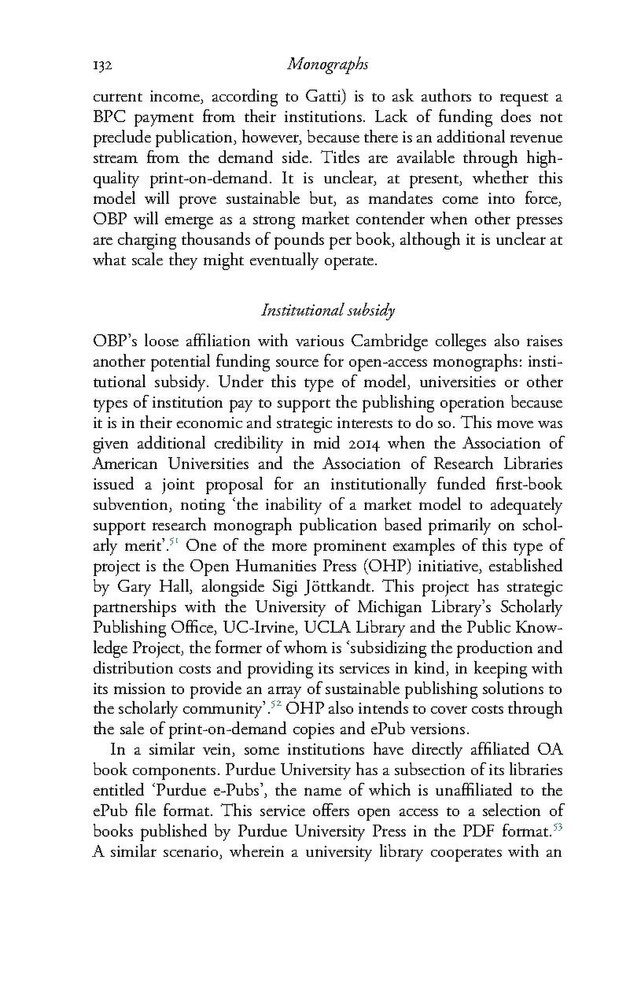current income, according to Gatti) is to ask authors to request a BPC payment from their institutions. Lack of funding does not preclude publication, however, because there is an additional revenue stream from the demand side. Titles are available through high-quality print-on-demand. It is unclear, at present, whether this model will prove sustainable but, as mandates come into force, OBP will emerge as a strong market contender when other presses are charging thousands of pounds per book, although it is unclear at what scale they might eventually operate.
Institutional subsidy
OBP’s loose affiliation with various Cambridge colleges also raises another potential funding source for open-access monographs: institutional subsidy. Under this type of model, universities or other types of institution pay to support the publishing operation because it is in their economic and strategic interests to do so. This move was given additional credibility in mid 2014 when the Association of American Universities and the Association of Research Libraries issued a joint proposal for an institutionally funded first-book subvention, noting ‘the inability of a market model to adequately support research monograph publication based primarily on scholarly merit’.51 One of the more prominent examples of this type of project is the Open Humanities Press (OHP) initiative, established by Gary Hall, alongside Sigi Jöttkandt. This project has strategic partnerships with the University of Michigan Library’s Scholarly Publishing Office, UC-Irvine, UCLA Library and the Public Knowledge Project, the former of whom is ‘subsidizing the production and distribution costs and providing its services in kind, in keeping with its mission to provide an array of sustainable publishing solutions to the scholarly community’.52 OHP also intends to cover costs through the sale of print-on-demand copies and ePub versions.
In a similar vein, some institutions have directly affiliated OA book components. Purdue University has a subsection of its libraries entitled ‘Purdue e-Pubs’, the name of which is unaffiliated to the ePub file format. This service offers open access to a selection of books published by Purdue University Press in the PDF format.53 A similar scenario, wherein a university library cooperates with an
